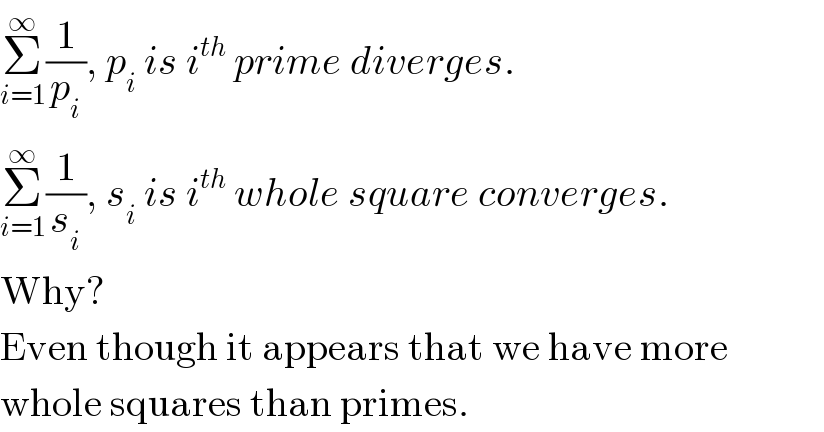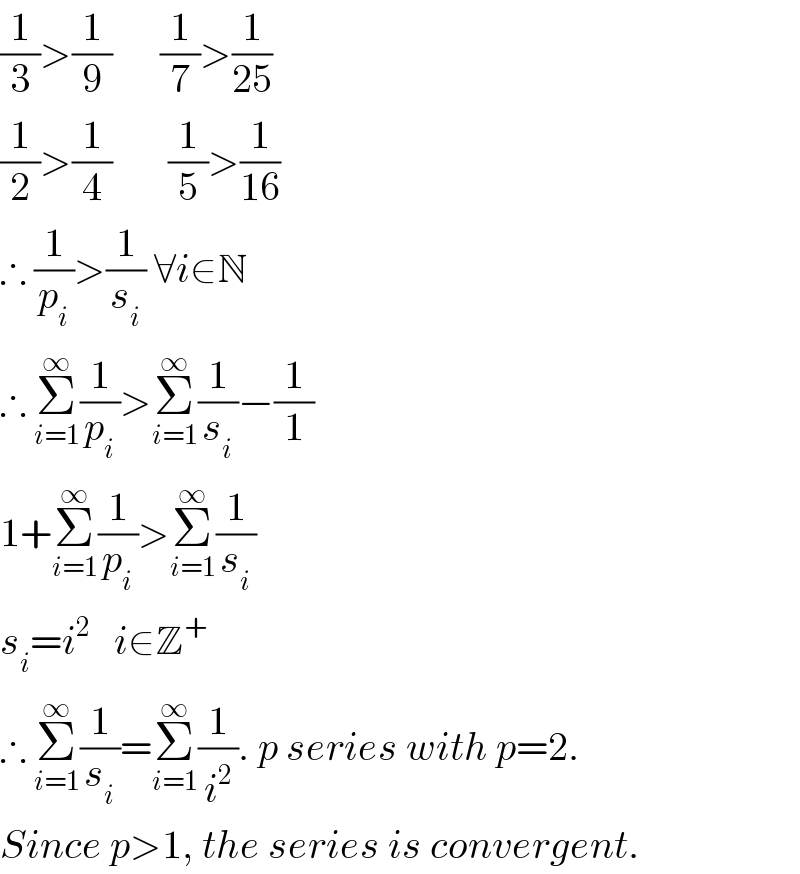Question Number 3546 by prakash jain last updated on 15/Dec/15

Commented by Yozzii last updated on 15/Dec/15

Commented by prakash jain last updated on 15/Dec/15

Commented by Filup last updated on 15/Dec/15

Commented by Yozzii last updated on 15/Dec/15

